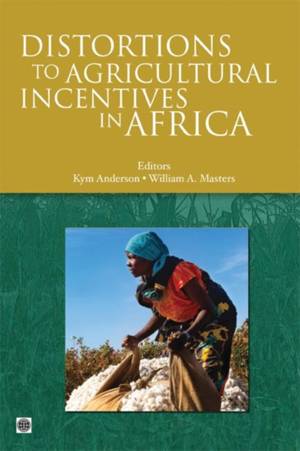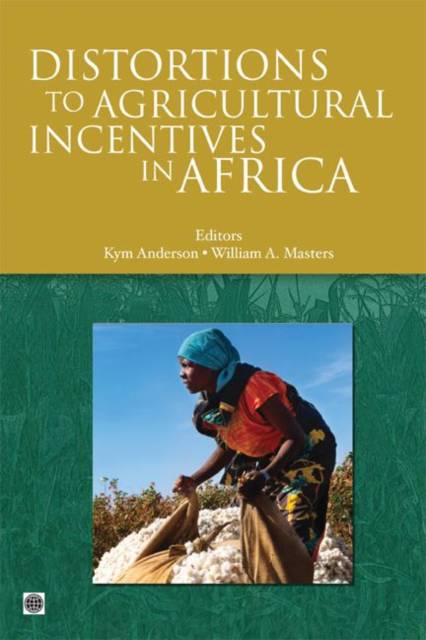
Bedankt voor het vertrouwen het afgelopen jaar! Om jou te bedanken bieden we GRATIS verzending (in België) aan op alles gedurende de hele maand januari.
- Afhalen na 1 uur in een winkel met voorraad
- In januari gratis thuislevering in België
- Ruim aanbod met 7 miljoen producten
Bedankt voor het vertrouwen het afgelopen jaar! Om jou te bedanken bieden we GRATIS verzending (in België) aan op alles gedurende de hele maand januari.
- Afhalen na 1 uur in een winkel met voorraad
- In januari gratis thuislevering in België
- Ruim aanbod met 7 miljoen producten
Zoeken
Distortions to Agricultural Incentives in Africa
€ 67,95
+ 135 punten
Omschrijving
The vast majority of the world's poorest households depend on farming for their livelihoods. During the 1960s and 1970s, most developing countries imposed pro-urban and anti-agricultural policies, while many high-income countries restricted agricultural imports and subsidized their farmers. Both sets of policies inhibited economic growth and poverty alleviation in developing countries. Although progress has been made over the past two decades to reduce those policy biases, many trade- and welfare-reducing price distortions remain between agriculture and other sectors and within the agricultural sector of both rich and poor countries. Comprehensive empirical studies of the disarray in world agricultural markets appeared approximately 20 years ago. Since then, the Organisation for Economic Co-operation and Development has provided estimates each year of market distortions in high-income countries, but there have been no comparable estimates for the world's developing countries. This volume is the third in a series (other volumes cover Asia, Europe's transition economies, and Latin America and the Caribbean) that not only fills that void for recent years but extends the estimates in a consistent and comparable way back in time--and provides analytical narratives for scores of countries that shed light on the evolving nature and extent of policy interventions over the past half-century. 'Distortions to Agricultural Incentives in Africa' provides an overview of the evolution of distortions to agricultural incentives caused by price and trade policies in the Arab Republic of Egypt plus 20 countries that account for about of 90 percent of Sub-Saharan Africa's population, farm households, agricultural output, and overall GDP. Sectoral, trade, and exchange rate policies in the region have changed greatly since the 1950s, and there have been substantial reforms since the 1980s. Nonetheless, numerous price distortions in this region remain, others have been added in recent years, and there has also been some backsliding, such as in Zimbabwe. The new empirical indicators in these country studies provide a strong evidence-based foundation for assessing the successes and failures of the past and for evaluating policy options for the years ahead.
Specificaties
Betrokkenen
- Uitgeverij:
Inhoud
- Aantal bladzijden:
- 656
- Taal:
- Engels
- Reeks:
Eigenschappen
- Productcode (EAN):
- 9780821376522
- Verschijningsdatum:
- 13/03/2009
- Uitvoering:
- Paperback
- Formaat:
- Trade paperback (VS)
- Afmetingen:
- 152 mm x 226 mm
- Gewicht:
- 816 g

Alleen bij Standaard Boekhandel
+ 135 punten op je klantenkaart van Standaard Boekhandel
Beoordelingen
We publiceren alleen reviews die voldoen aan de voorwaarden voor reviews. Bekijk onze voorwaarden voor reviews.








